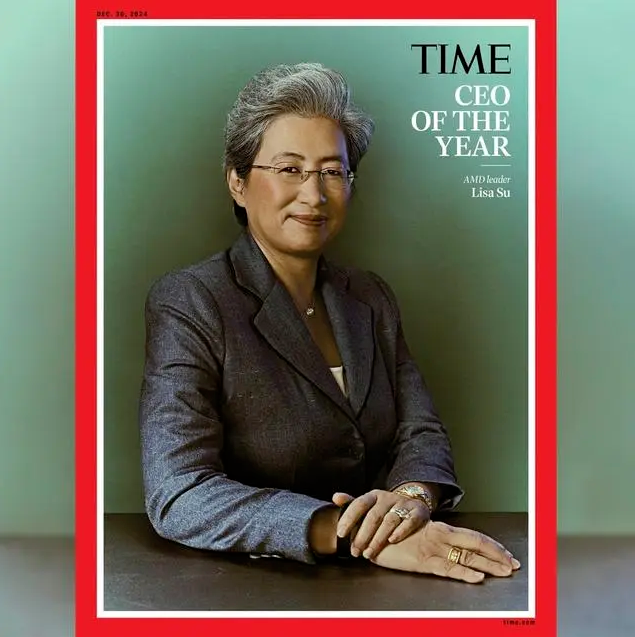Recently, the world-renowned magazine "Time" announced that AMD's Lisa Su won the CEO of the Year. Since taking over as AMD CEO in 2014, Su has successfully led the company, which was once on the verge of bankruptcy, to a path of steady development.
Under her leadership, AMD's stock price has soared nearly 37 times since 2004, and its market share has continued to expand.

During AMD's development, the launch of the "Zen" CPU architecture has won the company a high degree of market recognition. At the same time, the acquisition of companies such as Xilinx has further enriched AMD's product line and helped AMD better cope with the development of the AI era.
Su Zifeng believes that AI is one of the most important technologies in the future, and actively promotes AMD's research and development and investment in the field of AI chips. Products such as Instinct MI300X have performed well in the field of AI reasoning.
AMD's competitors currently dominate the AI chip market. In this regard, Su Zifeng said that the trend of large technology companies developing customized AI chips poses a challenge to AMD, but it also breeds huge opportunities. She believes that these customized chips will complement AMD's existing products and jointly promote the diversification and prosperity of the computing ecosystem.
Benefiting from the rapid popularization of large AI models, the demand for high-performance AI chips continues to be hot, which is good for companies such as AMD.
The industry said that the current AI chip supply is in short supply, and this situation may continue next year. Recently, TSMC Japan, a wholly-owned subsidiary of TSMC, a foundry manufacturer, said that TSMC's production speed cannot keep up with the demand for AI chips. It is expected that the supply of AI chips will continue to be short in 2025. The supply may catch up with demand in 2026, but if the demand exceeds expectations, it will face supply shortages again.
